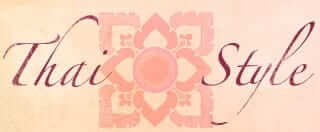Playing with Thai language and life
A very interesting article taken from www.chiangmaicitynews.com
Which reminds me of a real-life story: ‘The Farang’.
I’ve been here many years, I can speak Thai, I live in a community of Thais, and no one says tuk-tuk or you handsome man to me. I feel fairly adapted to my Thai life, people have interesting conversations with me in Thai and they open up when they do. Although occasionally I am reminded there are just so many things I still don’t understand. At times I am thrown outside of this new life, barred if you life, and stand there looking in wondering what the hell just happened. I thought I was getting along fine. After living here for so long you are neither at home back home or in your new home; you’re a bit of an outcast, a stranger, wherever you stand.
People ask can you ever adapt to Thai customs, culture, etc. The answer I believe is yes, but only if you learn the language very well. Everything that exists is contained within a language, and all languages (Ludwig Wittgenstein termed this language games) play by their own set of rules. If you talk to people the language you speak will demand certain rules are followed, or at least understood, even when you shake your head and say ‘shit!’ there is so much implicit meaning. We learn to interpret these hidden meanings from childhood (some people are more learned than others), and other languages might prove difficult if we don’t grow up in them. One of the reasons for foreign/Thai relationship troubles is that hidden rules tend to go unnoticed, and so they are broken. Even if you speak the language, you might not understand the conditions of the words. Translating is a messy affair. People of course have a certain amount of autonomy, and each one of us is utterly complex, but we all follow the rules of language.
How well do you play Thai?
Even when you do know about the rules, and can identify with your interlocutors, there are still some things that occasionally remind you you are out of your depth. Perhaps, and I don’t really know, it’s because Thailand’s language game is a particularly difficult one to play. The reason is because inherent to the game is another game of hide and seek. In Thailand people are generally not forthright with their feelings, and so you must seek the meaning of a sentence, as its real meaning has to be hidden because of certain cultural anomalies, i.e. often loss of face, kreng jai, hierarchy. Words, if they could be seen for what they really are, right before your eyes would be shape-shifting, and this would feel like a very scary acid trip.
The fact the word ‘len’ is so often used in Thailand is not a matter of coincidence. A lot of stuff we use in English we play in Thailand. Even politics is collocated with len. there are inherent meanings even in verb collocations. In Thailand you play politics. Do we ‘len chiwit’, life?
Sometimes when I think about us all having our personal dramas, and I kind of mentally pan out from where I am sitting, until we’re all just microscopic dots spinning on a rock in an infinite universe, I can almost play life. But then my phone beeps and suddenly the camera shoots back down to earth at an awesome speed. Today’s environment is designed to keep us busy, too busy to think about the smallness of our lives in view of this amazing universe. It’s hard to play life, but I guess we should try. The thing with thinking too much, on the other hand, is that someone has to do it, otherwise you could end up with a bunch of hoodlums in suits running a country…
I think, and again I don’t really know, that in order to survive in the Thai language game we must understand, and accept, the viability of len, or should I say playability. Often foreigners are called ‘too serious’, or are told we ‘khit mak’, which means think too much. Maybe that is true. For me personally, and remember I’m a stranger, I sit somewhere in the middle. I can’t quite get a handle on playing too much, but I value not being serious all the time. I think being an expat has turned me into a cultural outcast. I’ve heard many of my Thai friends, who are fluent in two languages and have travelled, that they also often feel like cultural outcasts. What have we done to ourselves? Condemned ourselves to cultural purgatory? We should probably all get together and have a party. Whoohoo, a room full of strangers.




